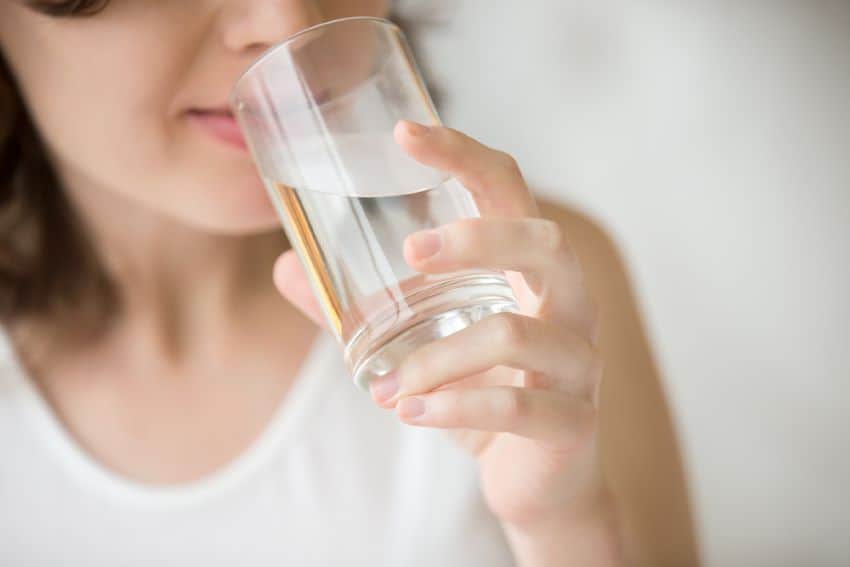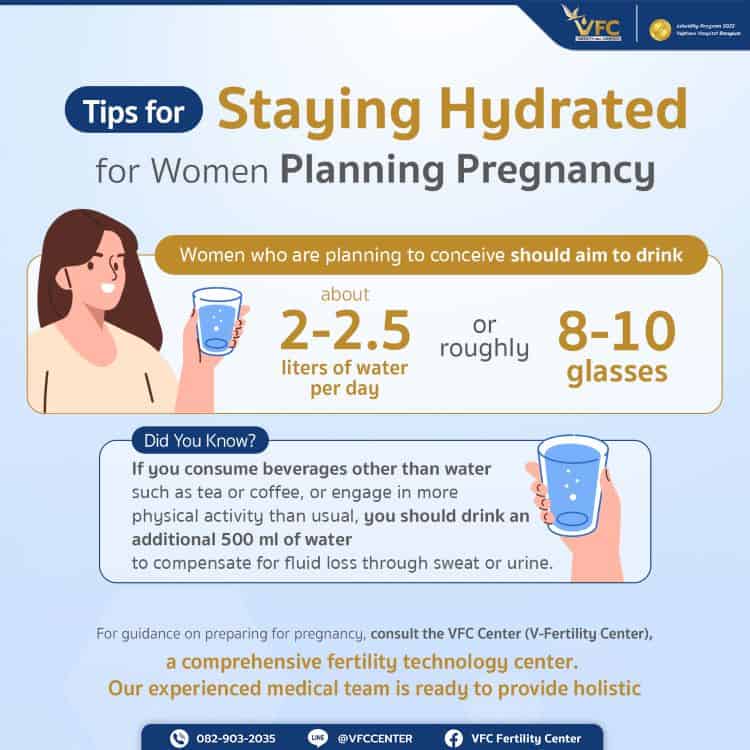
Staying well-hydrated by making sure you drink water regularly is more than just a healthy habit, it can actually increase pregnancy chances by supporting your reproductive system. Water helps regulate hormone levels, improve blood flow to the uterus, and optimize the quality of cervical mucus, all of which are key steps in conception. Beyond hydration, combining this practice with fertility boosting foods further strengthens your foundation. For more on foods that support conception, see our guide on foods that make you conceive.
Taking care of your health while preparing for pregnancy isn’t just about supplements or consulting your doctor. Small, often-overlooked habits, such as ensuring you drink enough water, play a crucial role. In fact, daily hydration is essential for the female reproductive system and may increase your chances of conceiving.
In this article, we’ll explore how staying properly hydrated can support fertility and improve your chances of pregnancy.
Why Is Water Important during Pregnancy?
The human body is made up of 60–70% water, and nearly every system relies on it to function properly—including the female reproductive system, such as the ovaries, uterus, and cervical mucus. Drinking enough water doesn’t just help eliminate waste; it also improves cell function, boosts blood circulation to key organs, and maintains effective hormone balance, which is essential for preparing for pregnancy.
How Does Hydration Affect Ovulation and Cervical Mucus?
One critical factor for conception is cervical mucus, which guides sperm toward the egg. High-quality cervical mucus should be clear, stretchy, and plentiful. A key factor affecting its quality is the body’s hydration level.
- If you drink too little water, cervical mucus can become thick, sticky, or insufficient in quantity, making it harder for sperm to reach the egg and reducing your chances of fertilization.
- Conversely, staying well-hydrated supports optimal cervical mucus quality during ovulation—the prime time for conception.

How Much Water Should You Drink?
Water needs vary depending on body weight, energy expenditure, and climate. However, women preparing for pregnancy are generally advised to drink 2–2.5 liters per day, roughly 8–10 glasses, to maintain proper hydration.
If you consume other beverages like tea or coffee, or engage in intense physical activity, consider adding about 500 ml of water to compensate for fluid loss through sweat or urine.

Tips for Effective Hydration for Those Planning Pregnancy
Drinking a large amount of water all at once is less effective than consistent intake throughout the day. Here are some practical tips:
- Drink a glass of water immediately after waking up to kickstart your system.
- Set a reminder every 2 hours to drink a small glass of water.
- Carry a water bottle with you to sip frequently rather than waiting until you feel thirsty.
- Choose room temperature or slightly warm water for easier absorption.
- Avoid sugary drinks, green tea, and iced tea, which contain caffeine and sugar that may disrupt hormone balance.
Although drinking water or eating fertility boosting foods may seem like a small habit, it is essential for those planning a pregnancy. Proper hydration supports reproductive health, including cervical mucus quality, ovulation, and hormone balance.
Couples preparing for conception can consult with the VFC Center (V Fertility Center), where we provide comprehensive care—from consultation and health assessment to professional pregnancy planning—supported by experienced doctors and advanced medical technology.
Article by Dr. Nannapat Parosiyanont
Contact or Book a Consultation:
VFC Center – V-Fertility Center
Hotline: 082-903-2035
LINE Official: @vfccenter

The team of specialists in obstetrics and gynecology and reproductive medicine





No Comments
Sorry, the comment form is closed at this time.